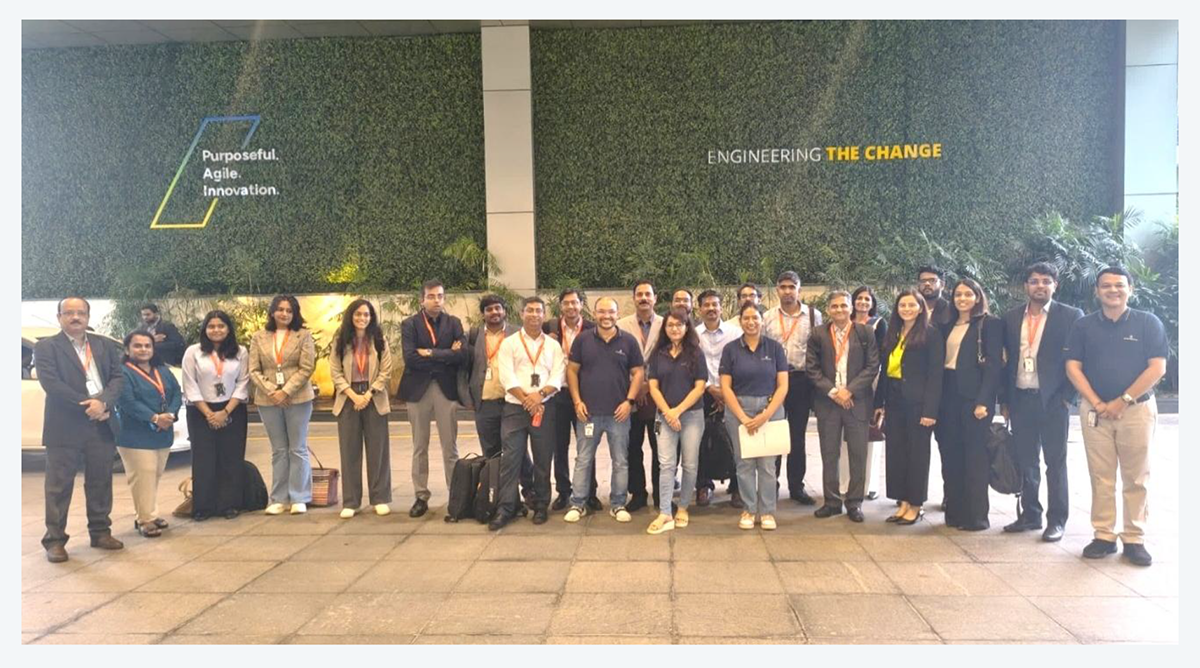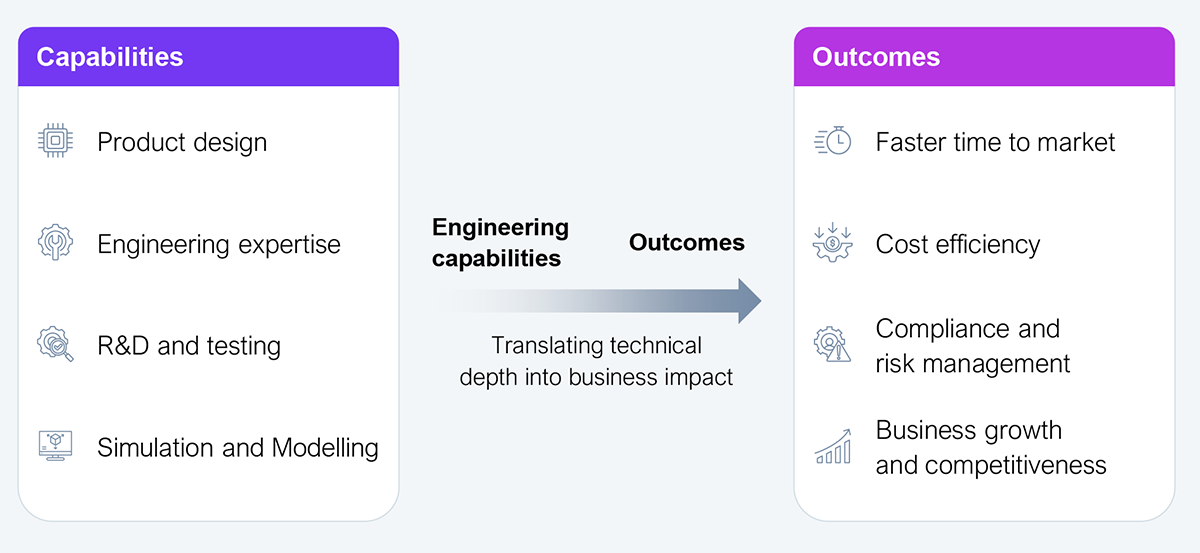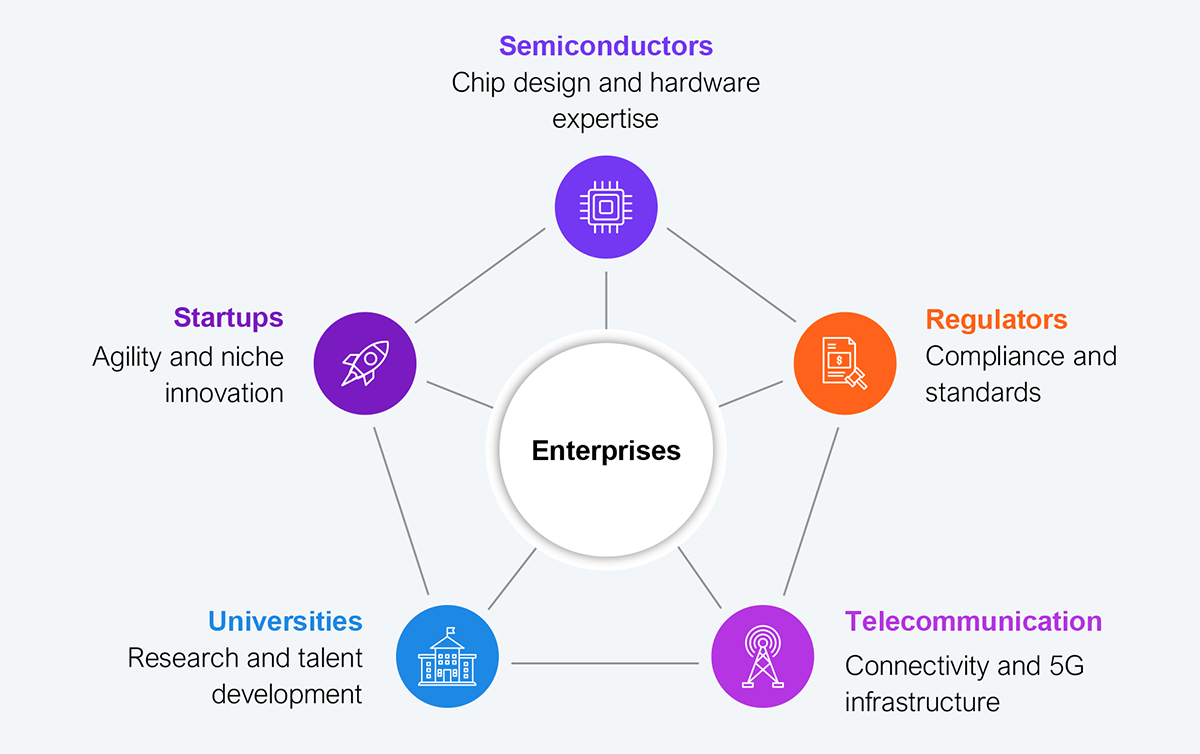Manufacturers burn millions designing systems that don’t make it to the market or fail to deliver business outcomes. EV systems are stalling due to fragmented supply chains, complex global regulations, and long product validation cycles. Telecom and industrial have been investing in private 5G, only to find themselves facing interoperability issues, ecosystem gaps, and unclear ROI.
To overcome these hurdles, manufacturers must shift to execution-led partnerships that convert deep technical capabilities into measurable impacts such as faster grid connections, real-time compliance automation, and competitive differentiation in asset performance. That’s where enablers like LTTS come in.
At its recent Analyst Road Show (see Exhibit 1), LTTS demonstrated how its EV lab helps OEMs align their simulation, design, and compliance efforts to cut time-to-market and meet regulatory demands. Likewise, its collaboration with Mavenir enables enterprises to test and scale private 5G networks in standards-aligned, low-risk environments, reducing rollout friction and accelerating operational readiness.

Source: HFS Research, 2025
In the past, manufacturers often engaged engineering service providers for their technical expertise to design, test, and validate specific products or components. Today, real value lies in how that technical depth translates into tangible business outcomes (see Exhibit 2).

Source: HFS Research, 2025
The true value of engineering services lies in enabling growth, improving efficiency, managing risks, and enhancing customer experience, not just delivering technical milestones. Take EV engineering: success isn’t confined to battery design or simulation excellence; the real advantage comes when these capabilities help OEMs and mobility providers meet regulatory standards faster, optimize development costs, and bring sustainable vehicles to market ahead of competition. That’s the new bar for enterprise leaders, and LTTS’ EV lab is setting it—an integrated environment for faster prototyping, testing, and validation that directly translates into business agility and compliance readiness.
A similar shift is underway as enterprises explore private 5G to power secure, low-latency industrial operations. Here too, the focus shifts from network deployment to business transformation. LTTS’ partnership with Mavenir extends this approach, helping enterprises harness private 5G for smart manufacturing, connected mobility, and digital twin applications that enhance operational efficiency and scalability.
By aligning its deep engineering capabilities with clients’ strategic imperatives, LTTS shows how providers can evolve from technical specialists to business enablers, setting a benchmark in the industry. For enterprises, the opportunity lies in choosing partners that not only solve engineering challenges but also drive meaningful outcomes across innovation, sustainability, and competitiveness.
Tackling EV electrification, 5G rollouts, and AI integration alone isn’t viable. The speed of technological change, regulatory investigations, and global competition demand a different approach, i.e., ecosystem-led innovation (see Exhibit 3).

Source: HFS Research, 2025
Co-creation labs, strategic partnerships, and joint ventures with semiconductor companies, telecom vendors, universities, and even startups create an environment where risks can be mitigated, proof-of-concepts (POCs) can be tested quickly, and solutions can scale more efficiently. For instance, a private 5G lab partnership ensures interoperability and compliance before large-scale rollouts, mitigating both financial and operational risks. By engaging ecosystems, enterprises don’t just get access to technology; they reduce cost burdens, increase agility, and ensure alignment with evolving standards and regulations.
LTTS’ focus on EV, 5G, and beyond shows how advanced engineering delivers business outcomes, from reducing time-to-market for automakers to accelerating private 5G deployments. For enterprises, this signals a shift in engineering, which is no longer just a support function but a strategic lever for growth, resilience, and competitiveness in a rapidly evolving market.
Register now for immediate access of HFS' research, data and forward looking trends.
Get StartedIf you don't have an account, Register here |
Register now for immediate access of HFS' research, data and forward looking trends.
Get Started